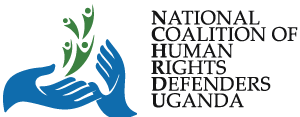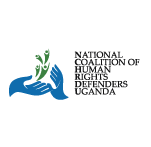- March 17, 2022
- Posted by: hrdcoalitionAdmin
- Category: Uncategorized
CONSULTANCY 1/2022: Development of A NCHRD-U Sub-Regional Coalition Governance Charter on the subject line.
1.0 Introduction
The National Coalition of Human Rights Defenders Uganda (NCHRD-U) is a registered organization of various organizations and individual Human Rights Defenders (HRDs) that was formed in 2013. It seeks to strengthen the work of HRDs throughout the country through synergy and collaboration at national and international level to enhance the protection mechanisms for HRDs and their capacity to effectively defend human rights. NCHRD-U focuses its work in all regions in Uganda.
The Coalition Secretariat has in partnership with various partners to support HRDs aiming at Protection of Human Rights Defenders Uganda. NCHRD-U’s purpose is to protect and promote the work of HRDs in safe and secure environment through linkages with national, regional and international entities. Individuals and organizations working to promote the protection of Human Rights Defenders (HRDs) in Uganda.
Further information about the Organization can be found on our website: www.hrdcoalition.ug
2.0 Background
Whereas there have been deliberate efforts to respond to emerging HRD challenges in the recent past with the support of our partners, there are still gaps that have promoted a hostile environment that has hugely affected the work of HRDs. These gaps are manifested through the restrictive legal framework, harassment and intimidation by state and non-state actors who perceive HRDs as supporters of Government opposition, foreign agents aimed at destabilizing the country and sabotaging government programs[1], rampant office break ins, arbitrary arrests, surveillance, smear campaigns, unlawful detention, freezing of banks accounts suspension from work, torture, defamation and failure of state to prosecute those who have violated the rights of HRDs.
The threats, attacks and challenges of HRDs are not limited to those in the urban areas but also grassroot HRDs within the rural areas of Uganda. The risk assessments conducted by the NCHRD-U with the support of CRD-Sweden have indicated more vulnerability of HRDs at the grassroot compared to those at the National level[2].
These violations vary from region to region and yet the grassroot HRDs lack the skills and capacities to influence the environment in which they operate (HRDs both individuals and organizations. There is weak coordination and Collaboration among HRDs, at community grass root level, they are not strategic in purpose but usually interact to resolve immediate threats for timely and effective response especially at the sub regional level for example67% of HRDS reported a general perception of irresolute Advocacy fragmented amongst the HRDs since most HRDs implement or conduct their work individually not collectively.
It is against this background that the Coalition is seeking services of a technical consultant to support the process of development of a charter for to govern the operationalization of NCHRD-U sub regional coalition networks.
3.0 Objective of the Assessment exercise
To support development of a Sub-regional charter that will provide a blue-print to strengthen grassroot HRD organizations to collectively advance human rights in their respective regions through establishing and strengthening grassroot HRD sub regional coalition Networks.
3.1 Scope of the Sub-regional charter development technical consultancy.
The proposed scope of the proposed assignment includes the following;
- Mapping out key stakeholders specific to the Sub-Regional Coalition building charter
- Assess and benchmark the existing information on sub-regional coalitions for HRDs in other regions
- Find out the available and existing protection issues of the HRDs at sub-regional levels
- Help streamline protection issues key to the sub regional coalition building and improve coordination of the structure.
- Find out the areas of improvement in the coordination channels and protection generally
- Provide information that will be utilized to support and help streamline protection issues and coordination in the sub regional coalition.
- Provide a basis for a robust, structured and inclusive complimentary emergency support to the HRDs in dire need and to assist them to effectively continue their work.
- Provide information that will be utilized in developing tools and initiatives to raise awareness of on the importance of having a sub-regional coalition for the HRDs
3.2 Geographical Scope
The assignment is expected to be very comprehensive and as such it will cover the identified HRDs and stakeholders across Uganda.
3.3 Time Scope
The Assessment exercise is expected to last a total of 23 consecutive from 28 th March to 19th April 2022.
4.0 Specific Outputs/ deliverables
Specific outputs expected out of the mapping process will be the following;
- A charter on regional Coalition network (Governance structure, roles and responsibilities of the network members)
- Tools to support the functioning of the charter
- Coordination initiatives developed
- Guidelines to the charter on Regional Coalition building
4.1 Specific Tasks for the Consultant (s)
Specific Tasks will include; Planning
Consultant will conduct the mapping exercise paying attention to the following:
- A brief inception write up outlining the approach/ methodology to be employed in executing the assignment.
- Review relevant documents or recommended of the existing literature on the HRD regional coalition network building
- Prepare materials to utilize in the facilitating the exercise
- Provide the methodology to be used in development
- Use adaptive methods to embrace the context
- Conduct face to face sessions using the questionnaire
- Hold feedback sessions with the Coalition.
- Compiling the assessment report.
- Map HRD stakeholders
- Administer questionnaires targeting HRDs as separate clusters to understand their specific needs,
- Conducting key informant interviews from selected HRDs.
- Applying the virtual methods is also recommended to ensure full participation of the key informants, FGDs or any other kind of engagement that needs to be used.
It is expected that the following categories of persons will be targeted for information. The respondents can be grouped according to categories or be in mixed groups.
- Members of the Coalition
- Regional Referral Network members
- Technical Thematic working group
- Regional Referral Committees
- Focal and sub-regional focal persons
- State Actors
- Board members especially the thematic representative
- Senior management
- Specific Staff
- Members of the Referral networks especially on the case handlers
5.0 Budget and Payment
The consultant should provide an indicative budget per day in Uganda Shillings.
The consultant will be paid professional fees as compensation for his/her technical/professional expertise and time invested in the delivery of the expected outputs.
Notable is that the Consultant will be responsible for declaration of the income for income tax purposes and where applicable, NCHRDU will make 6% statutory deductions (from the gross payment) payable to Uganda Revenue Authority as withholding tax in accordance with the income tax regulations of Uganda
6.0 Qualifications and Experience
- Academic Qualifications Relevant Master’s degree in any of the following academic disciplines: Humanities, Law, Organizational development and psychology; Human Rights, Monitoring and Evaluation;
- Experience: Over five year’s professional experience in organisational development and management consultancy; experience in human rights work.
- Demonstrated experience in working with Civil Society on corporate governance mechanisms
Skills and Competencies:
- Ability to work with minimal supervision;
- Proven excellent written and oral communications skills in English;
- Application/use of innovative and effective tools for stakeholder’s engagement in the collection of required information and feedback;
- Demonstrates excellent interpersonal and professional skills in respect to engagement with stakeholders and partners;
- Excellent analytical, facilitation and communication skills for effective stakeholder engagements/workshops;
- Evidence of having undertaken similar assignments;
- Excellent writing and reporting skills;
- Ability to work efficiently and deliver on committed outputs under the assignment within agreed timelines and deadlines
7.0 Application Process
Interested and qualified candidates should submit their applications which should include the following:
- Technical proposal
- Financial proposal
- Detailed Curriculum Vitae
Applications should be emailed to [email protected] to reach us not later Wednesday 23rd March 2022
[1] https://hrdcoalition.ug/wp-content/uploads/2020/10/NCHRD-U-BASELINE-REPORT-2019.pdf
[2] Annual report 2019 https://hrdcoalition.ug/wp-content/uploads/2020/09/2019-Annual-Report-Turning-the-Tide.pdf

